Wearing correctly prescribed glasses does not weaken your eyes; it simply helps you see clearly and comfortably without straining. […]
Does Wearing Glasses Weaken Your Eyes?
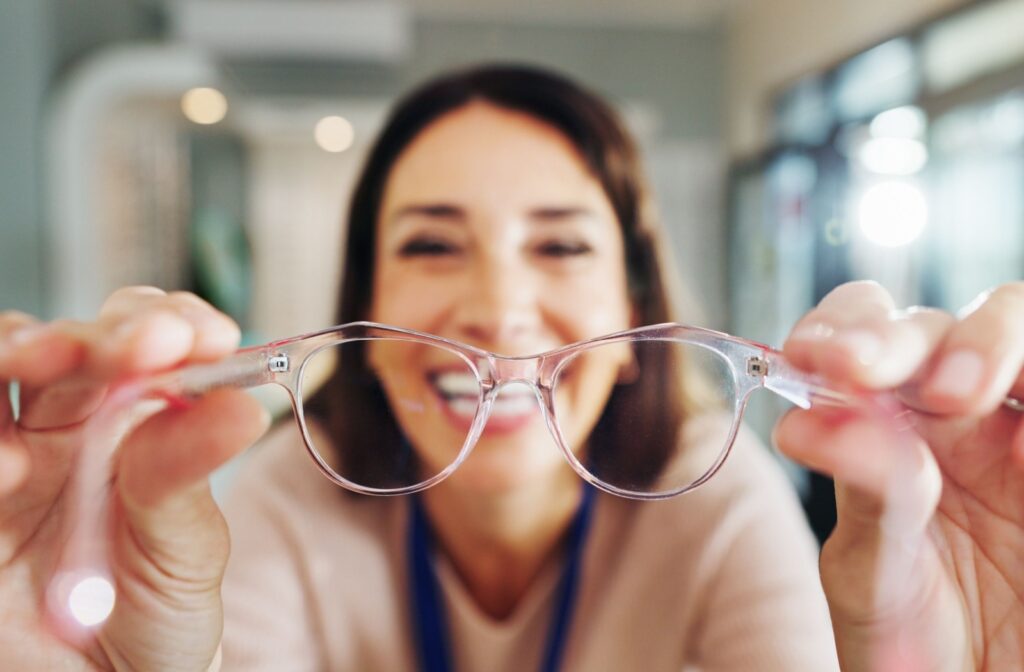



Wearing correctly prescribed glasses does not weaken your eyes; it simply helps you see clearly and comfortably without straining. […]
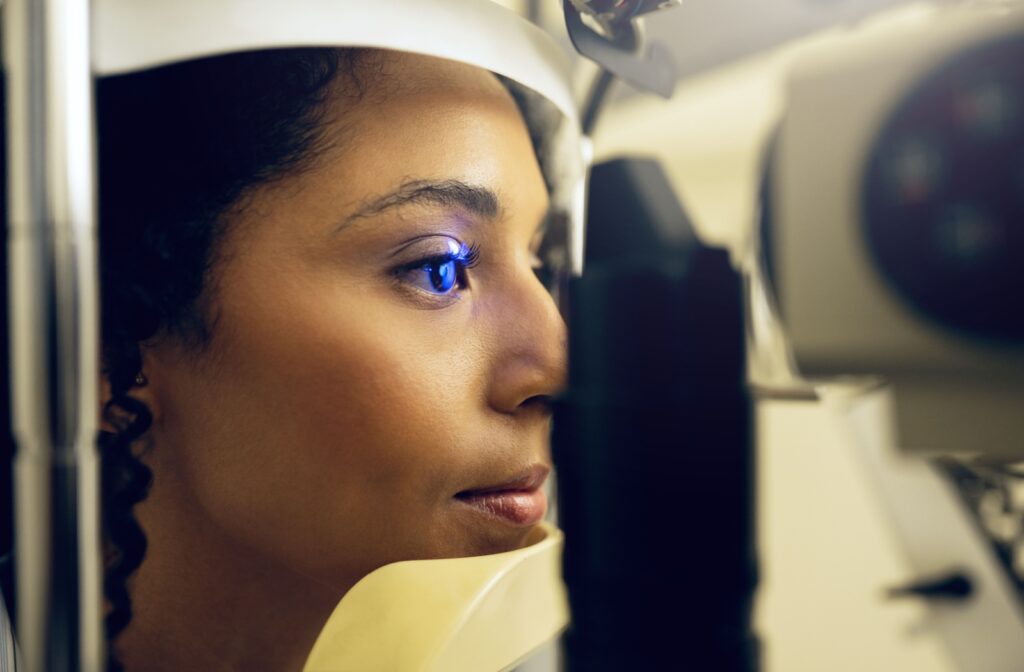
A diabetic eye exam is a specific type of check-up that looks closely for any signs of damage to the small blood vessels in your eyes and watches out for early signs of other eye conditions. […]
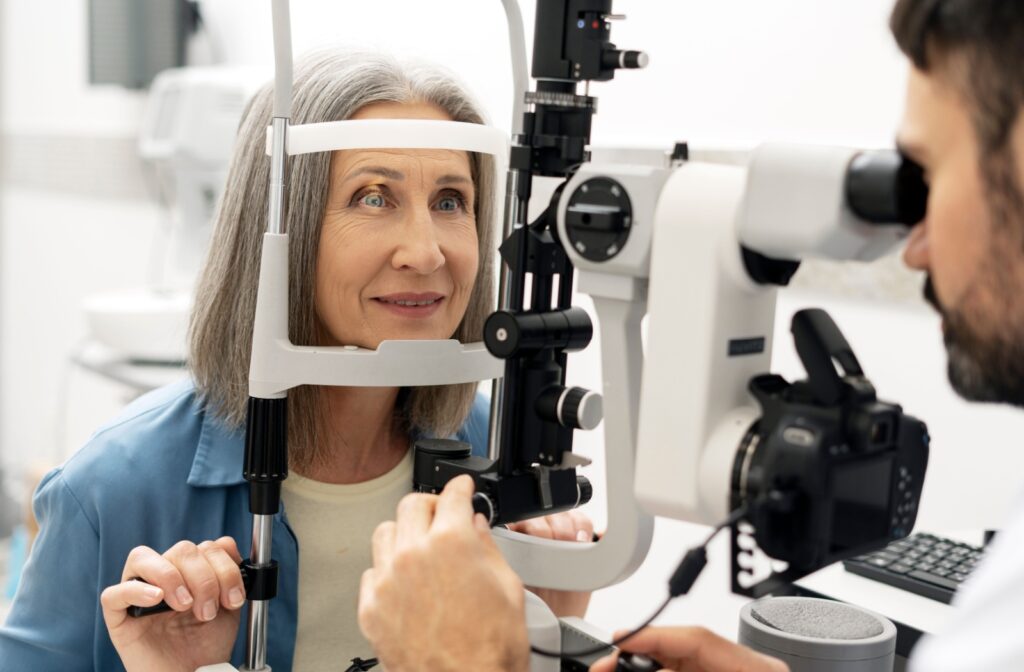
Glaucoma can be hereditary, and knowing your family’s eye health history is an important step in caring for your own vision. […]

Yes, computer glasses are different from reading glasses because they are designed for different viewing distances and tasks. […]
Read More… from Are Computer Glasses Different from Reading Glasses?
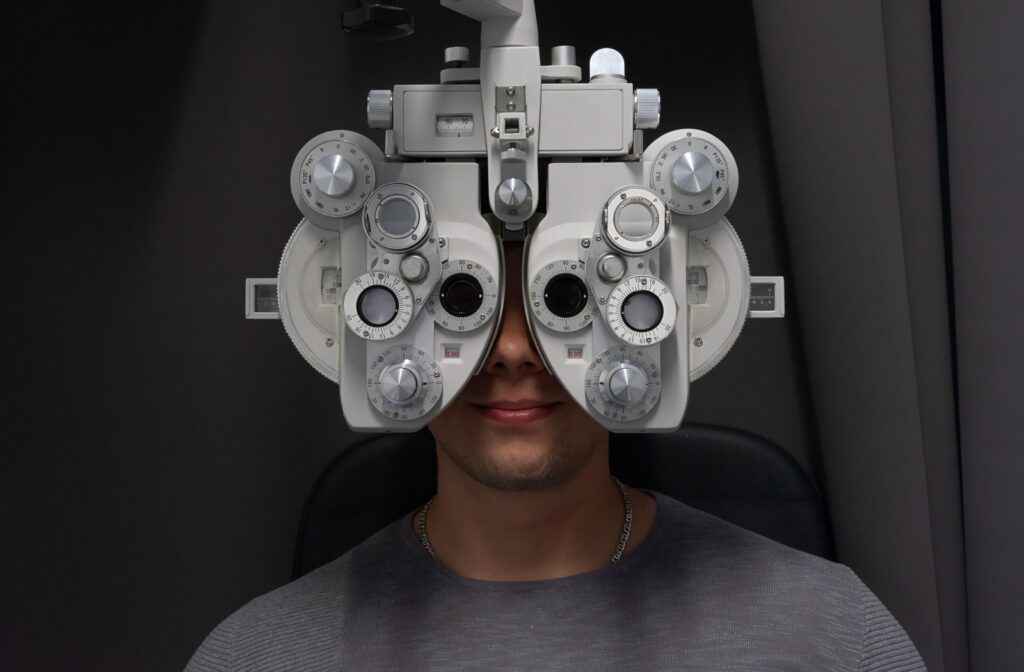
A refraction test helps us determine the prescription you need for eyeglasses or contact lenses. […]
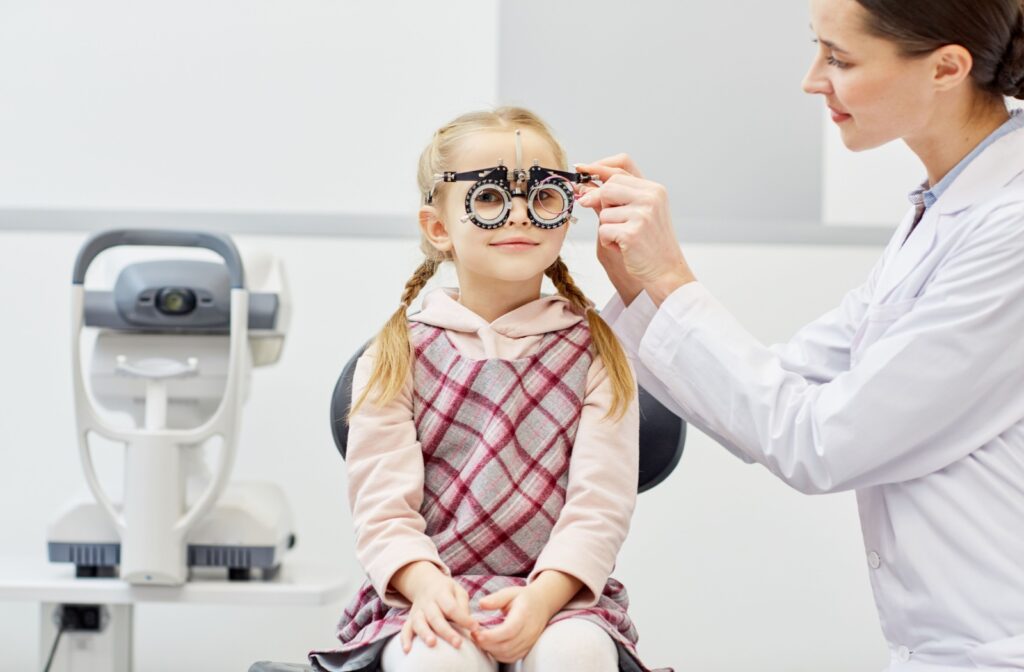
Myopia makes it difficult to see distant objects clearly, while hyperopia causes challenges with close-up vision. […]
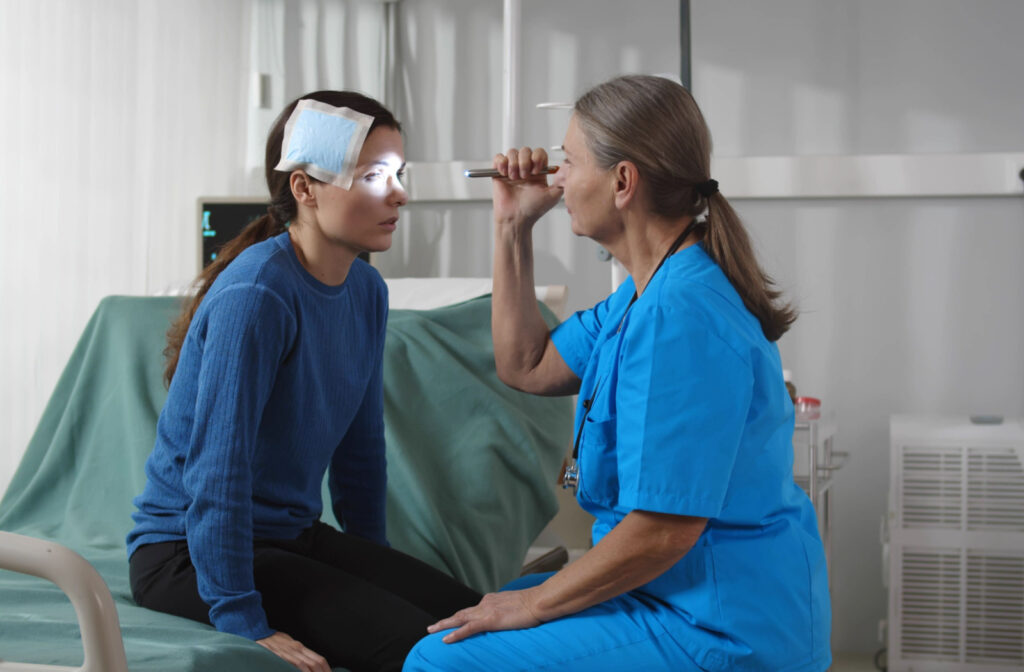
If you have an eye issue, call your optometrist first. Optometrists are the best initial point of contact for eye-related issues and can typically see you sooner. […]
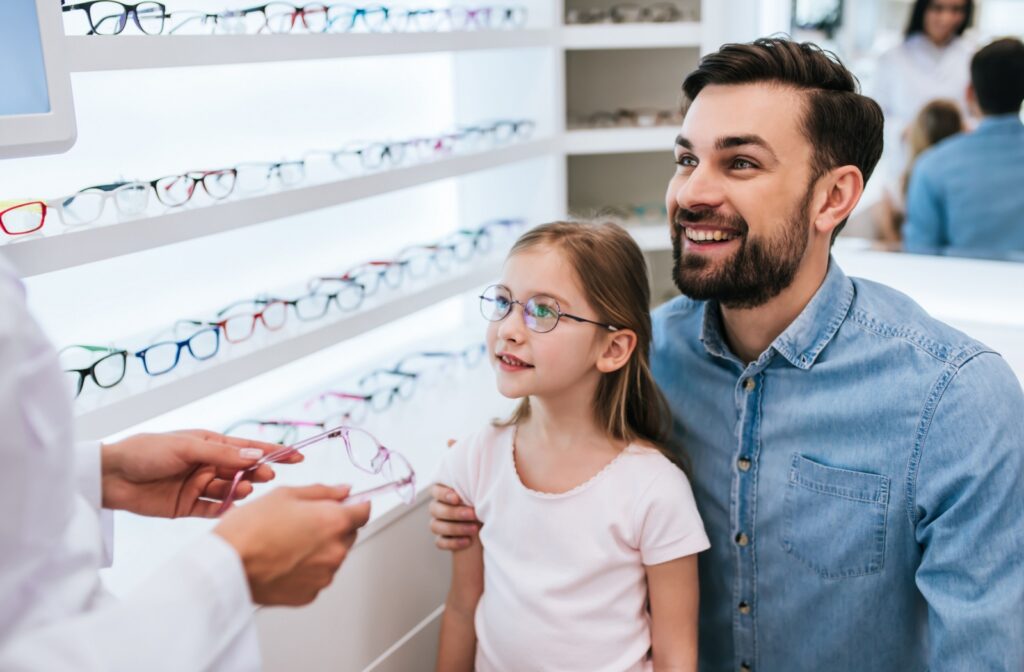
Myopia progression happens when the eye grows longer over time, leading to worsening distance vision and increasing the risk of long-term eye health issues. […]
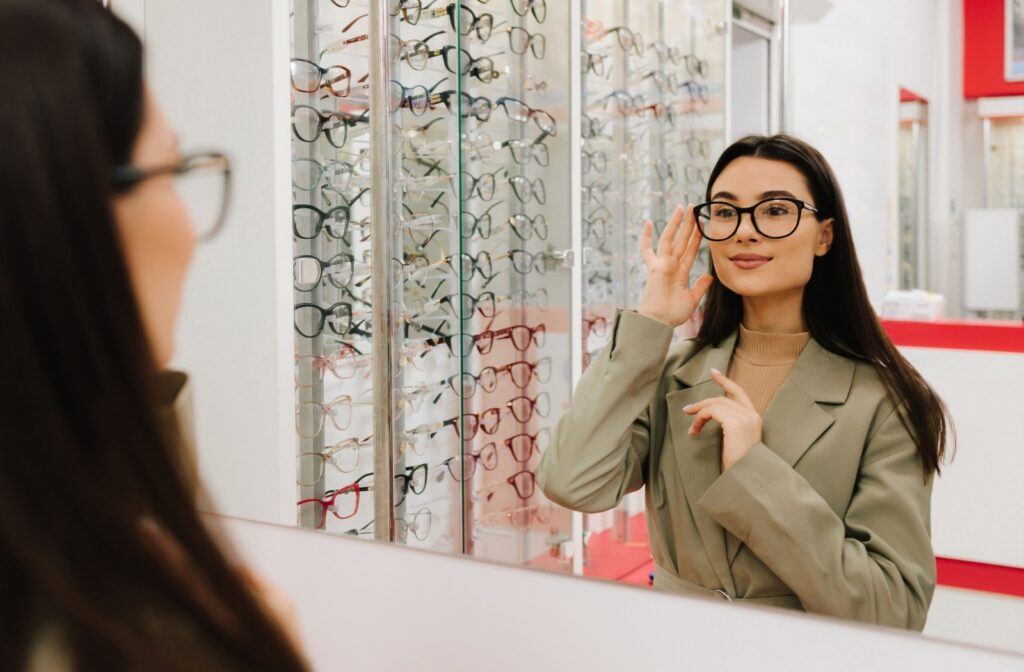
Your glasses should sit comfortably on your nose and ears, align seamlessly with your eyes, and enhance your unique face shape without slipping or pinching. […]
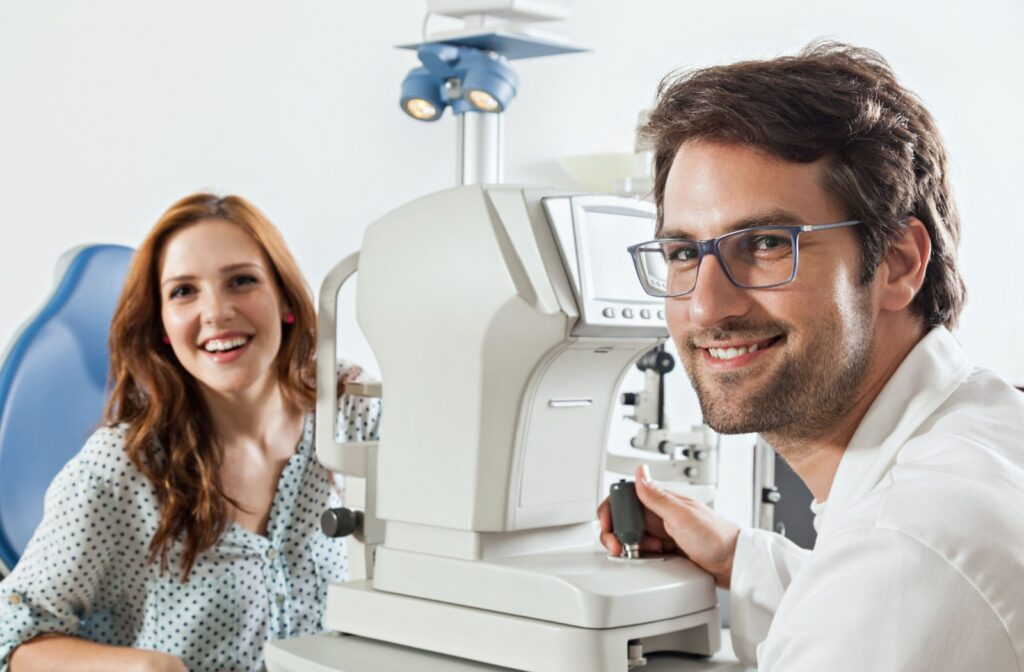
Some of the conditions that can be identified during an eye exam include:
-Refractive errors (like nearsightedness or farsightedness)
-Cataracts
-Glaucoma
-Diabetic retinopathy
-Macular degeneration, among others
[…]
Read More… from What Diseases Can Be Detected in an Eye Exam?